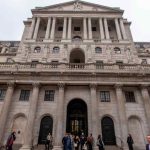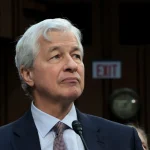SOPA Images / Getty Images
- Crypto exchange Binance’s Singapore unit had applied for a license to operate in the city-state.
- It is now withdrawing the application and winding down its Singapore digital payment token business.
- Singapore is among the forerunners globally in developing a formal licensing framework.
The Singapore affiliate of Binance, one of the world’s largest cryptocurrency exchanges, said on Monday it will withdraw its local license application and wind down its digital payment token business in the broadly crypto-friendly city-state.
The company, which has come under growing scrutiny globally, did not give a reason for its decision beyond “strategic, commercial and developmental” considerations and said it would refocus the local unit’s operations on becoming a blockchain innovation hub.
Governments and financial watchdogs around the world have intensified scrutiny of the cryptocurrency industry this year, posing a challenge to exchanges that have thrived in a mostly unregulated environment.
The move comes a week after Binance said it plans to file for a license from the UK’s Financial Conduct Authority, and to become a registered crypto asset firm there within six to 18 months. Since clashing with the regulator in June, Binance has established a UK office with a large number of compliance staff.
Singapore is a popular location for cryptocurrency firms due to a comparatively clear regulatory and operating environment and is among the forerunners globally in developing a formal licensing framework.
Binance’s Singapore unit was one of well over a hundred cryptocurrency companies to apply for a license to operate in Singapore and had been allowed to do business while its license request was being processed.
Singapore issued its first licenses this year, including to a unit of Southeast Asia’s largest bank DBS, however, dozens of others have been withdrawn or rejected.
Binance said its Singapore platform for trading fiat and cryptocurrencies will close by mid-February. In September, the company said that because of local regulation, users in Singapore would not be able to trade on its global platform.
“I think this signifies again Singapore’s license regime is quite stringent,” said Chia Hock Lai, co-chairman, Blockchain Association Singapore.
“Having said that, Binance also stated that Singapore will remain as their blockchain innovation hub, so it is still consistent with the narrative that Singapore is a very important blockchain hub.”
Financial regulators in Hong Kong, Germany, and Japan, among others, have targeted Binance, raising issues such as consumer protection and anti-money laundering checks. Some have banned the platform from certain activities, while others have warned consumers that it was unlicensed to operate.
In September, the Commodity Futures Trading Commission and other US regulators launched a probe into whether Binance engaged in insider trading and market manipulation.
Powered by WPeMatico




